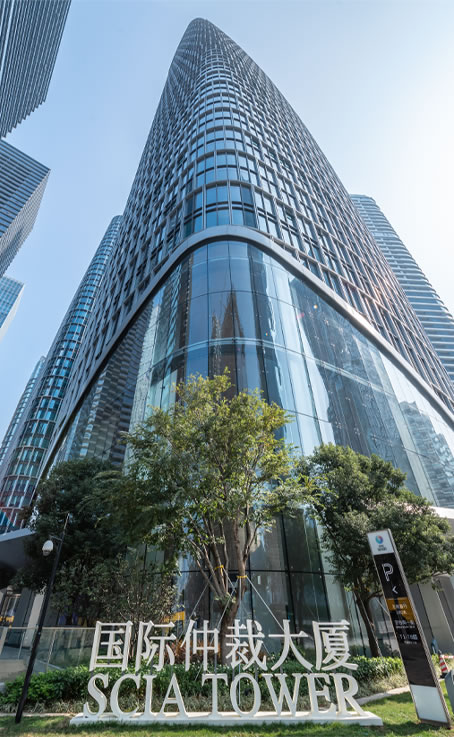
With the sustained development of China's economy, an increasing number of Chinese enterprises, especially those in the South China region with Guangdong at the forefront, have begun to expand beyond the national borders, engaging in trade and investment activities overseas. How to prevent various legal risks faced by Chinese enterprises in the process of "going global", and how to resolve disputes that arise from their commercial activities abroad, have become common challenges for Chinese enterprises that are "going global".
On July 29, 2011, a seminar was held in Shenzhen on how to avoid risks for Chinese companies as an increasing number of Chinese companies are venturing abroad to engage in trade and investment activities.
The seminar was jointly held by the Shenzhen Court of International Arbitration (also known as the South China International Economic and Trade Arbitration Commission, and formerly known as the CIETAC South China Sub-Commission and CIETAC Shenzhen Sub-Commission, hereinafter referred to as the SCIA) and the East Asia Branch of the Chartered Institute of Arbitrators (CIArb). The event received support from various entities including the Legislative Affairs Department of the Ministry of Commerce of the PRC, the Fourth Civil Division of the Supreme People's Court of the PRC, relevant departments of the Guangdong Provincial Government, the Shenzhen Municipal Government, and related agencies in the Hong Kong SAR.
Approximately 400 representatives, mainly legal executives from large enterprises in the southern China, partners from well-known domestic and international law firms in Guangdong, arbitration experts from renowned arbitration institutions, and officials from domestic courts and government departments attended the seminar.
The seminar was hosted by Dr. Liu Xiaochun, Deputy Secretary-General of the SCIA. Han Jian, Secretary-General of the SCIA and Joe Gilfeather, Chairman of the Chartered Institute of Arbitrators East Asia Branch, respectively delivered welcome and opening remarks.
Han pointed out that since China's reform and opening-up and the establishment of the Shenzhen Special Economic Zone, the SCIA has witnessed and participated in the initial growth and expansion of cross-border legal services in the Guangdong-Hong Kong-Macao region under the national strategy of "bringing in". In recent years, with the significant number of Chinese companies going global, Chinese enterprises have also encountered many risks and challenges overseas. Effectively controlling and preventing these risks has become an urgent and important topic for Chinese companies, Han said.
Wu Delin, Deputy Secretary-General of the Shenzhen Municipal Government, delivered a speech, emphasizing the necessity of holding such a seminar in Shenzhen to construct a comprehensive service support system for Chinese companies going global.
The seminar was divided into three sessions to discuss the legal risks faced by Chinese companies going global and risk prevention strategies.
The first session, chaired by Chen Weihua, General Counsel of China Southern Airlines Co Ltd, featured legal executives from representative enterprises in the southern region such as ZTE Corporation, Ping An Insurance (Group) Company of China, Huawei Technologies Co, Ltd, Tencent Holdings, and China Merchants Group Co, Ltd, sharing their experiences in risk prevention from the perspective of enterprises.
The second session, moderated by Ou Yongliang, President of the Guangdong Lawyers Association, featured representatives from professional institutions such as King & Wood Mallesons, Zhong Lun Law Firm and Simmons & Simmons, offering professional legal advice for Chinese companies.
The third session, moderated by Guo Yimin, Vice-President of the Shenzhen Municipal Intermediate People's Court, analyzed the ways and means for Chinese companies to resolve disputes from the perspective of judicial institutions. Dr. Liu Xiao Chun, Deputy Secretary-General of the SCIA analyzed how Chinese companies should prevent and resolve disputes in the process of "going global" by considering various factors such as convenience, fairness, costs, effectiveness, and harmony, suggesting that Chinese companies should choose a "home field" strategy whenever possible when choosing dispute resolution methods.
The closing remarks were delivered by Li Xiaoguang, then Deputy Secretary-General of SCIA.
The seminar received strong support from Legislative Affairs Department of the Ministry of Commerce as the special supporting organization, the Guangdong Provincial Department of Foreign Trade and Economic Cooperation, various municipal departments of foreign trade and economic cooperation in the Pearl River Delta, the Provincial State-owned Assets Supervision and Administration Commission, the Provincial Federation of Industry and Commerce, the Provincial Lawyers Association, and various municipal lawyers associations in the Pearl River Delta.
In Shenzhen, supporting organizations included the Shenzhen Municipal Intermediate People's Court, the Municipal Science, Industry, Trade, and Information Commission, the Municipal State-owned Assets Supervision and Administration Commission, the Authority of Qianhai Shenzhen-Hong Kong Modern Service Industry Cooperation Zone of Shenzhen, and Shenzhen Foreign Enterprise Association. Supporting organizations from Hong Kong included the Hong Kong International Arbitration Centre, the China Company Association, the Hong Kong Bar Association, the Law Society of Hong Kong, and the Hong Kong Institute of Chartered Secretaries. Co-organizing organizations included ZTE Corporation, King & Wood Mallesons, Zhong Lun Law Firm, Simmons & Simmons, Des Voeux Chambers, and Maxwell Contract Services Co, Ltd.

